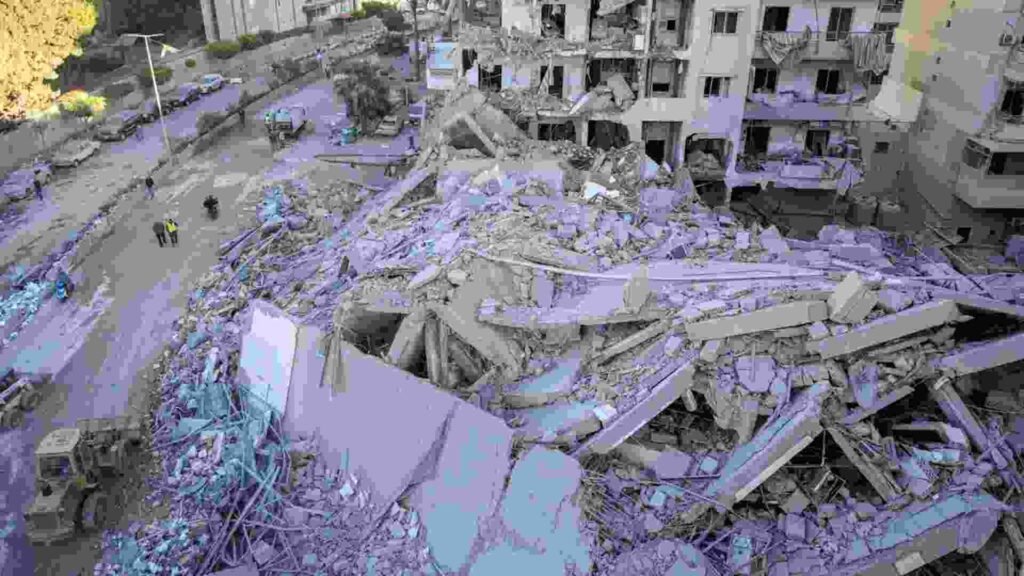
In a dramatic escalation of tensions, Israel has announced the declassification of intelligence regarding a hidden Hezbollah financial hub allegedly located beneath a hospital in Beirut. The Israeli Defense Forces (IDF) claimed that this bunker contains an estimated half a billion dollars in cash and gold, purportedly used to fund the militant group’s operations.
The announcement follows a series of targeted airstrikes by the Israeli Air Force on Sunday night, which hit nearly 30 Hezbollah-linked sites, including locations tied to Al-Qard Al-Hassan (AQAH), a financial firm accused of facilitating Hezbollah’s access to cash and gold. IDF spokesperson Rear Admiral Daniel Hagari revealed during a televised briefing that the bunker, said to be under Al-Sahel Hospital, remains untouched by airstrikes despite its significant financial resources.
“This money could and still can be used to rebuild the state of Lebanon,” Hagari stated, highlighting the potential implications of the funds. The IDF emphasized the ongoing campaign to disrupt Hezbollah’s finances, with reports indicating over 300 strikes against the group’s positions in Lebanon within a 24-hour period.
Al-Qard Al-Hassan, operational since the 1980s, has long been characterized by Israeli and U.S. officials as a critical financial arm of Hezbollah, despite its registration as a charity. The firm is believed to facilitate money laundering and financing of military activities under the guise of civilian banking services.
According to Hagari, the strikes also targeted an underground vault containing tens of millions of dollars, resources allegedly earmarked for attacks on Israel. While he did not specify if all funds were destroyed, he warned of further airstrikes aimed at additional financial hubs.
The IDF further claimed that Hezbollah’s revenue streams primarily stem from Lebanese citizens and the Iranian regime. Funds are said to flow through various channels, including cash transfers from Syria and gold smuggled into Lebanon from Iran. The group’s financial operations are reportedly supported by factories in Lebanon, Syria, Yemen, and Turkey, generating significant income for its military endeavors.
In a related development, Israel conducted an airstrike in Syria targeting the head of Hezbollah’s financial unit, known as Unit 4400, responsible for managing Iranian funds to the group. The strike resulted in the death of a commander who had recently assumed the role.
This operation follows a series of retaliatory measures from Hezbollah, which has intensified its attacks on Israeli targets since the escalation of conflict after the October 7 attacks in 2023. Israeli officials estimate that approximately 2,000 Hezbollah fighters have been killed in the ongoing hostilities, underscoring the escalating violence in the region.
Sources By Agencies
 Digital Scoop India Official Platform of Digital Scoop India Featuring Latest & Best News #Articles #Bytes #Entertainment #DigitalScoopMagazine
Digital Scoop India Official Platform of Digital Scoop India Featuring Latest & Best News #Articles #Bytes #Entertainment #DigitalScoopMagazine



